These 22 Vegetables Pack in Tons of Protein

- Oops!Something went wrong.Please try again later.
If you’ve even considered going vegan or vegetarian, you’ve no doubt heard the same question over and over: “How will you get enough protein?” Yes, animal products are often rich in protein—but that doesn’t mean there aren't high-protein vegetables that can’t hold their own (or be just as delicious).
Protein is a crucial building block of everyone’s diet, especially for athletes and those trying to lose weight. It’s essential for building and maintaining muscle mass, keeping you feeling full between meals, and ensuring that every cell in your body is operating properly. Although we most often associate the nutrient with foods like meat and dairy, vegetables are also a great source of plant-based protein, as long as you eat with purpose.
“Of course it’s possible to get all of the protein you need from a plant-based or vegan diet,” says Diana Sugiuchi, R.D.N., founder of Nourish Family Nutrition. “But it takes some planning to make sure you’re getting essential amino acids and vitamins and minerals, particularly B vitamins and iron.”
To make the most of a plant-based diet, you should eat “a variety of grains, legumes, seeds, nuts, and vegetables every day,” explains Jerlyn Jones, R.D.N., L.D., an Atlanta-based dietitian. “Choose whole, unrefined foods, such as soybeans in the form of tofu, to boost protein intake.”
Both Jones and Sugiuchi note that there’s no exact definition for a high-protein vegetable, but certain varieties stand out from the crowd. Per current U.S. Food and Drug Administration (FDA) guidelines, adults should consume at least 50 grams of protein in a 2,000-calorie diet daily, with about 15 to 20 grams per meal. (Some research even suggests bumping that to 30 grams per meal, particularly breakfast, for better hunger management throughout the day.)
And if you need any more proof that vegetables can provide all the protein you need to thrive, just ask athletes like Venus Williams and Kyrie Irving, who went vegan and are still at the top of their game. Don’t be afraid to start eating more plant-based protein—your body will probably thank you, too.
Here are some of the top high-protein vegetables to add to your diet, according to the FDA, whether or not you plan on going plant-based.
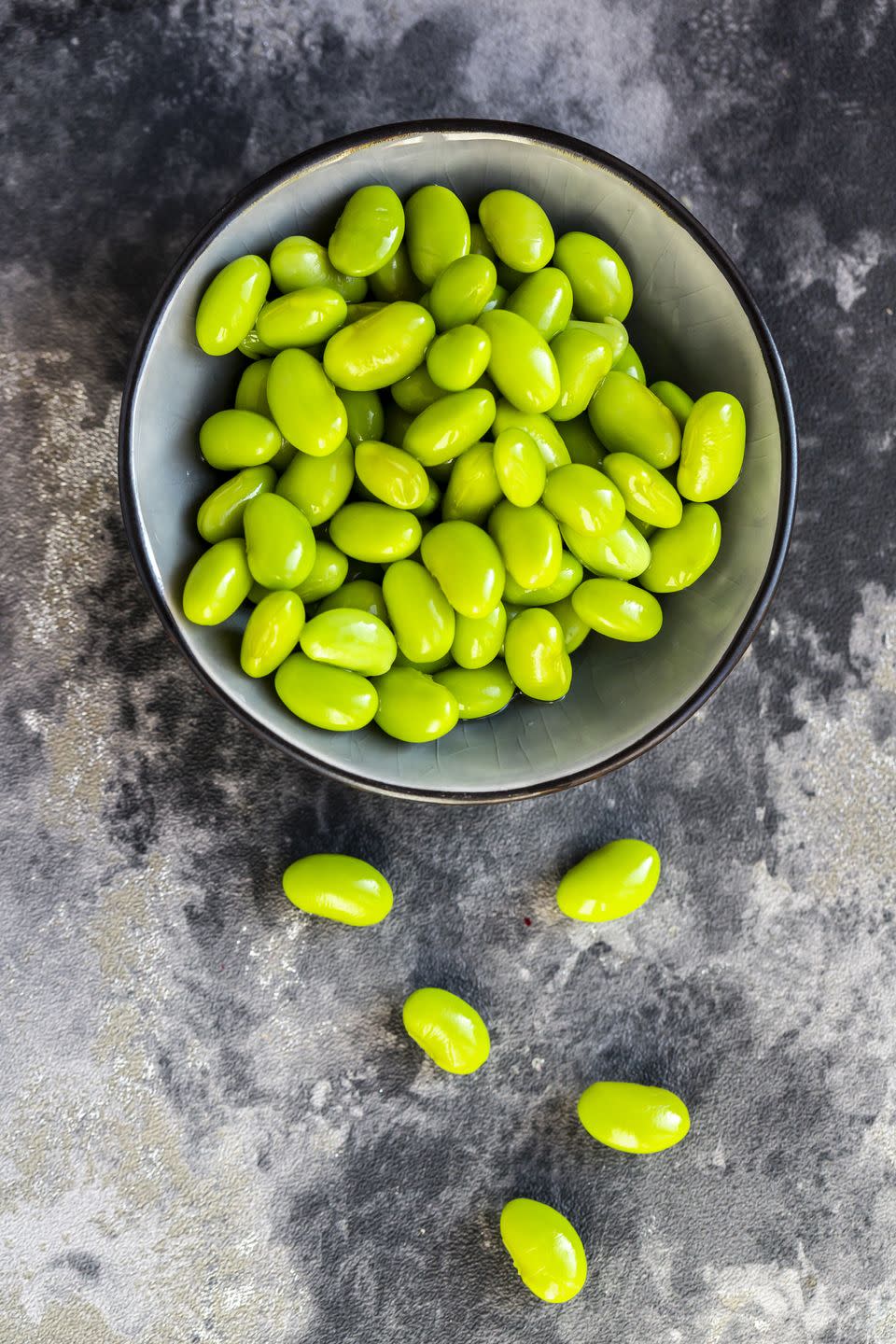
1. Edamame
Protein: 9 grams per 1/2 cup, cooked
Talk about the healthiest appetizer ever—just a cup’s worth of edamame (a.k.a. cooked soybeans) packs a stunning amount of protein. Jones calls it “simply delicious to eat as a snack or thrown into soups or vegetable stir-fry.” There are endless options, too, like pureeing the beans into a dip, for example.
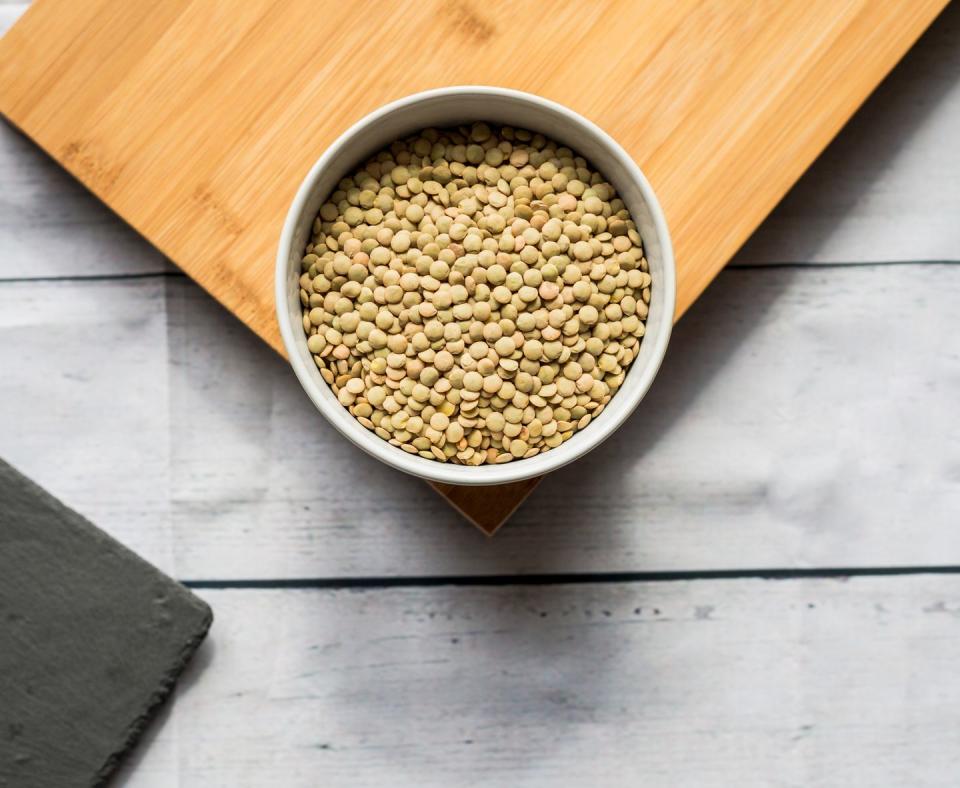
2. Lentils
Protein: 8 grams per 1/2 cup, cooked
Low-cal, high-fiber lentils are a bonafide superfood. They don’t require soaking, Jones says, so lentil soup or curry is easy to whip up. Plus, she notes, they’re rich in folate, potassium, and copper, making them even healthier than the grains they can replace. And don’t be afraid to get creative—how about lentil hummus?
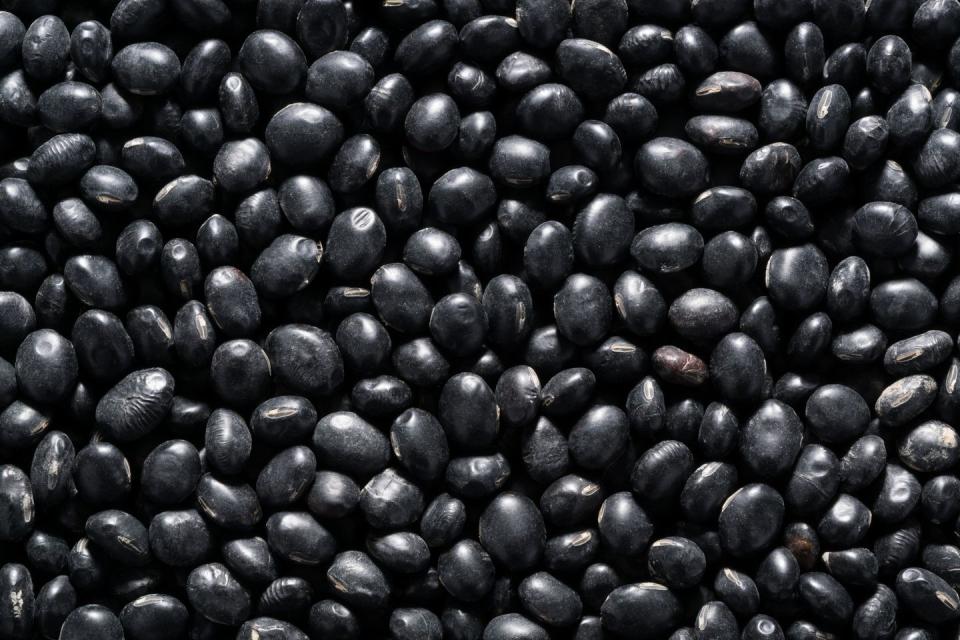
3. Black Beans
Protein: 8 grams per 1/2 cup, cooked
On top of providing plenty of protein, black beans are also packed with heart-healthy fiber, potassium, folate, vitamin B6, and a range of phytonutrients. You can absolutely make a meal out of them alone (black bean burgers, anyone?), but they’re also easy to slip into almost any dish, Jones explains, including soups and stir-fries.
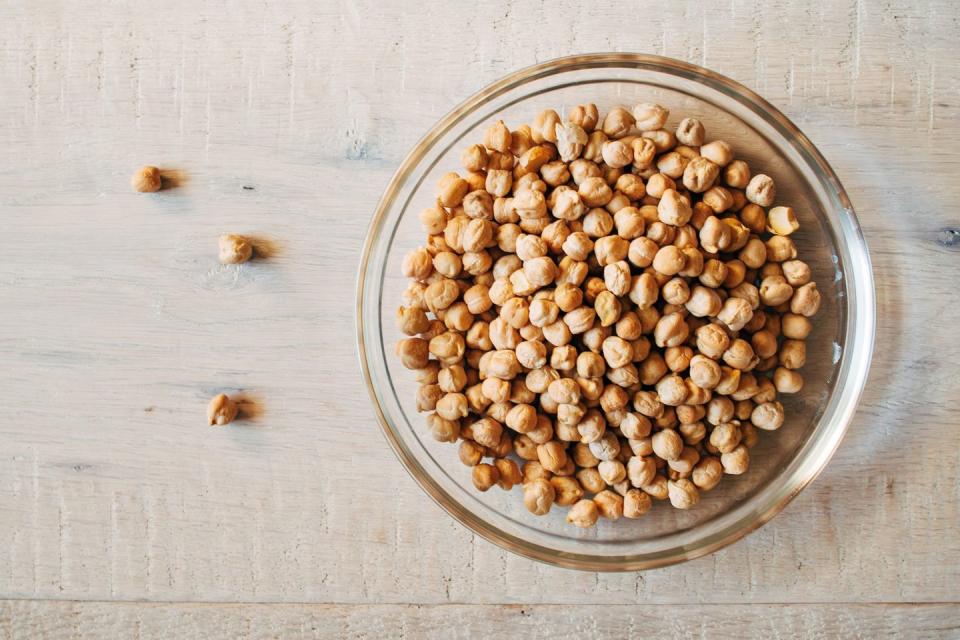
4. Chickpeas
Protein: 7 grams per 1/2 cup, cooked
The combo of protein and fiber in chickpeas makes for one healthy bean. Of course, most of us know and love chickpeas from hummus, but they’re able to transform into almost anything, from rich falafel to crunchy, baked snacks. They’re especially good whole inside soups, salads, and even crepes.
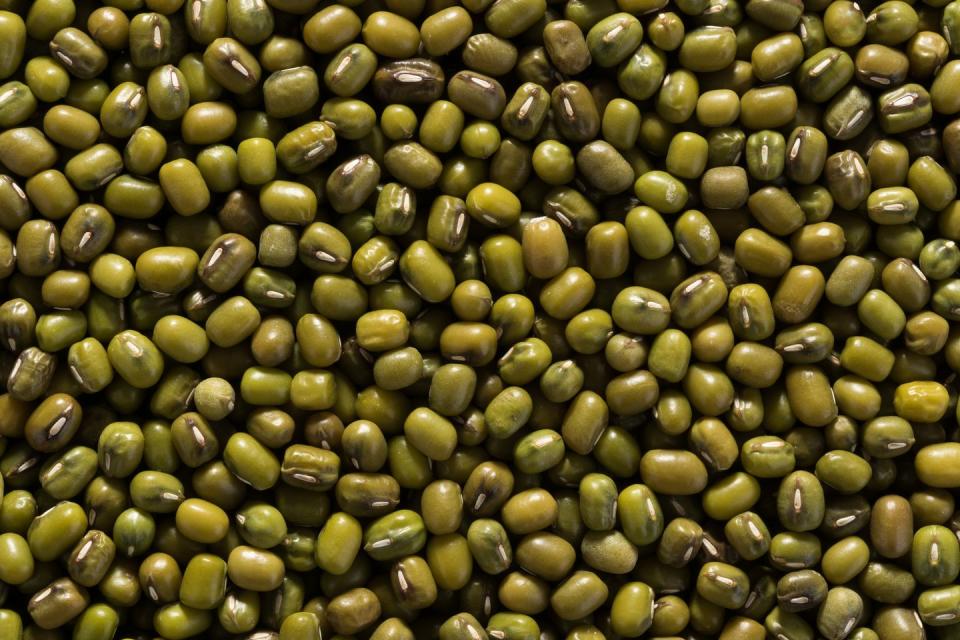
5. Mung Beans
Protein: 7 grams per 1/2 cup, cooked
Rich in antioxidants, mung beans are tiny powerhouses of nutrition that are just begging to be included in your next curry, soup, or salad. For an extra satisfying meal, add them to a veggie bowl filled with other plant-based proteins, including Brussels sprouts and walnuts—you can thank us later.
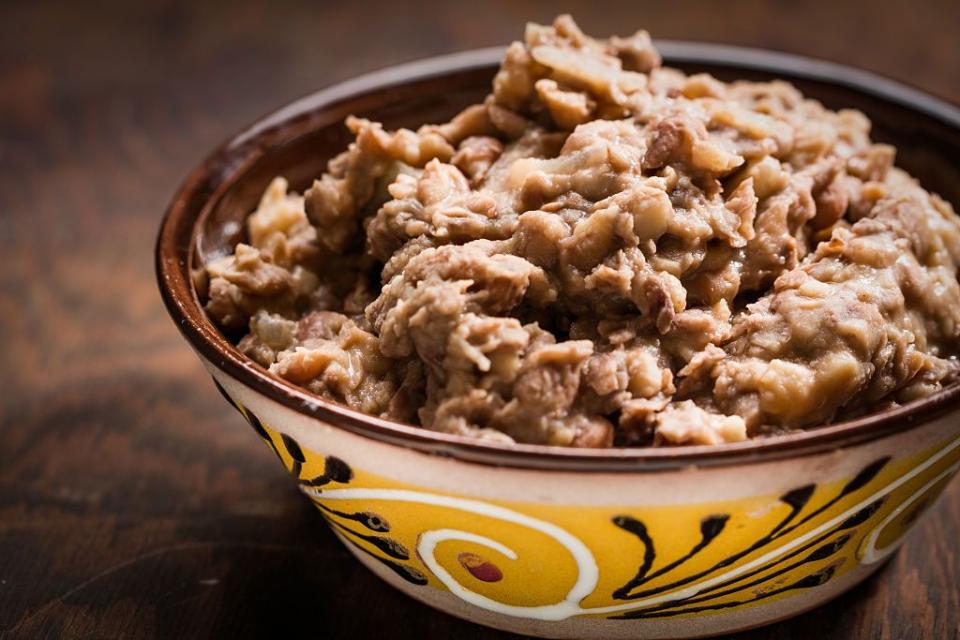
6. Refried Beans
Protein: 6.5 grams per 1/2 cup, cooked
Sugiuchi fills tacos and enchiladas with refried black and pinto beans, on top of eating them alone. “If you’re transitioning your family to more plant-based sources of protein, you can also mix them with ground beef or chicken to cut down on the amount of meat so you’re not making such a big change,” she says.
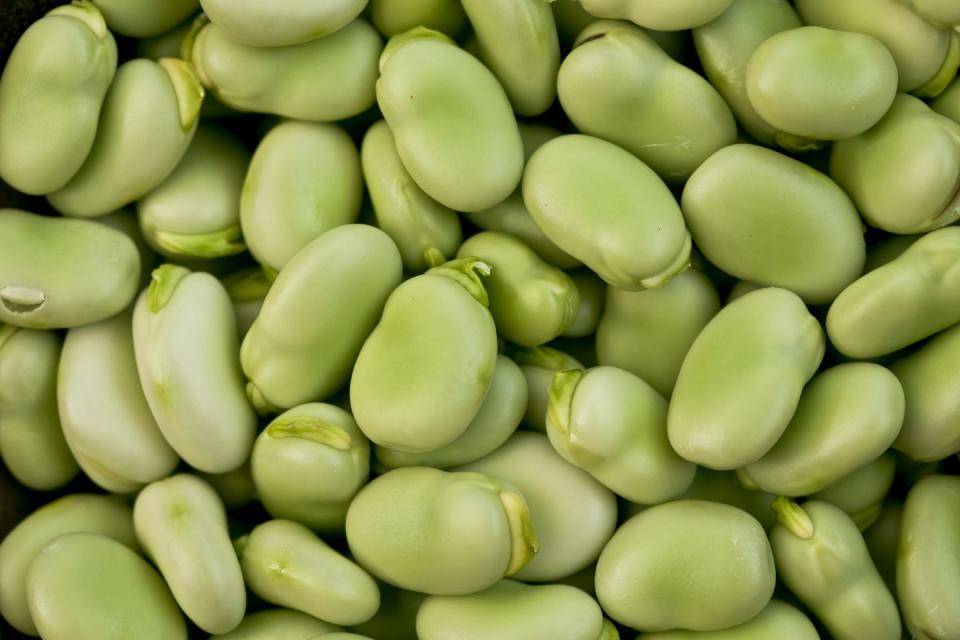
7. Fava Beans
Protein: 6.5 grams per 1/2 cup, cooked
Also known as broad beans, fava beans should be a bigger staple of our diets, since they work in soups, bean salads, and even dips like hummus, providing plenty of protein along the way. And like other legumes, these ones are also rich in filling fiber, ensuring you’ll feel satisfied after eating.
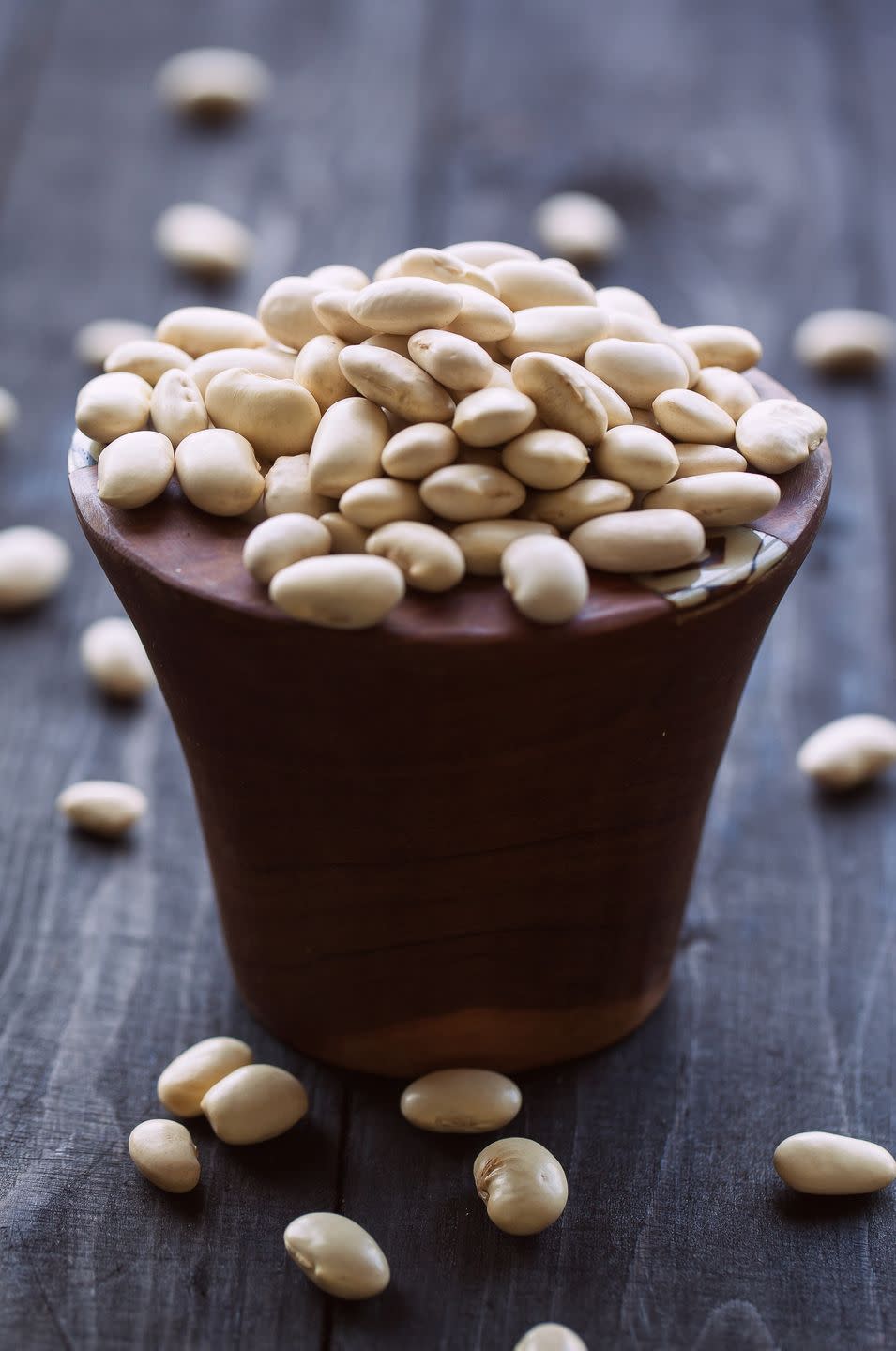
8. Lima Beans
Protein: 5 grams per 1/2 cup, cooked
In addition to filling protein, lima beans contain the amino acid leucine, which may play a big role in healthy muscle synthesis among older people. They’re especially good on their own—and you’ll probably love them more as an adult than you did as a kid. Plus, they’re super-easy to add to soups—just throw ‘em in!
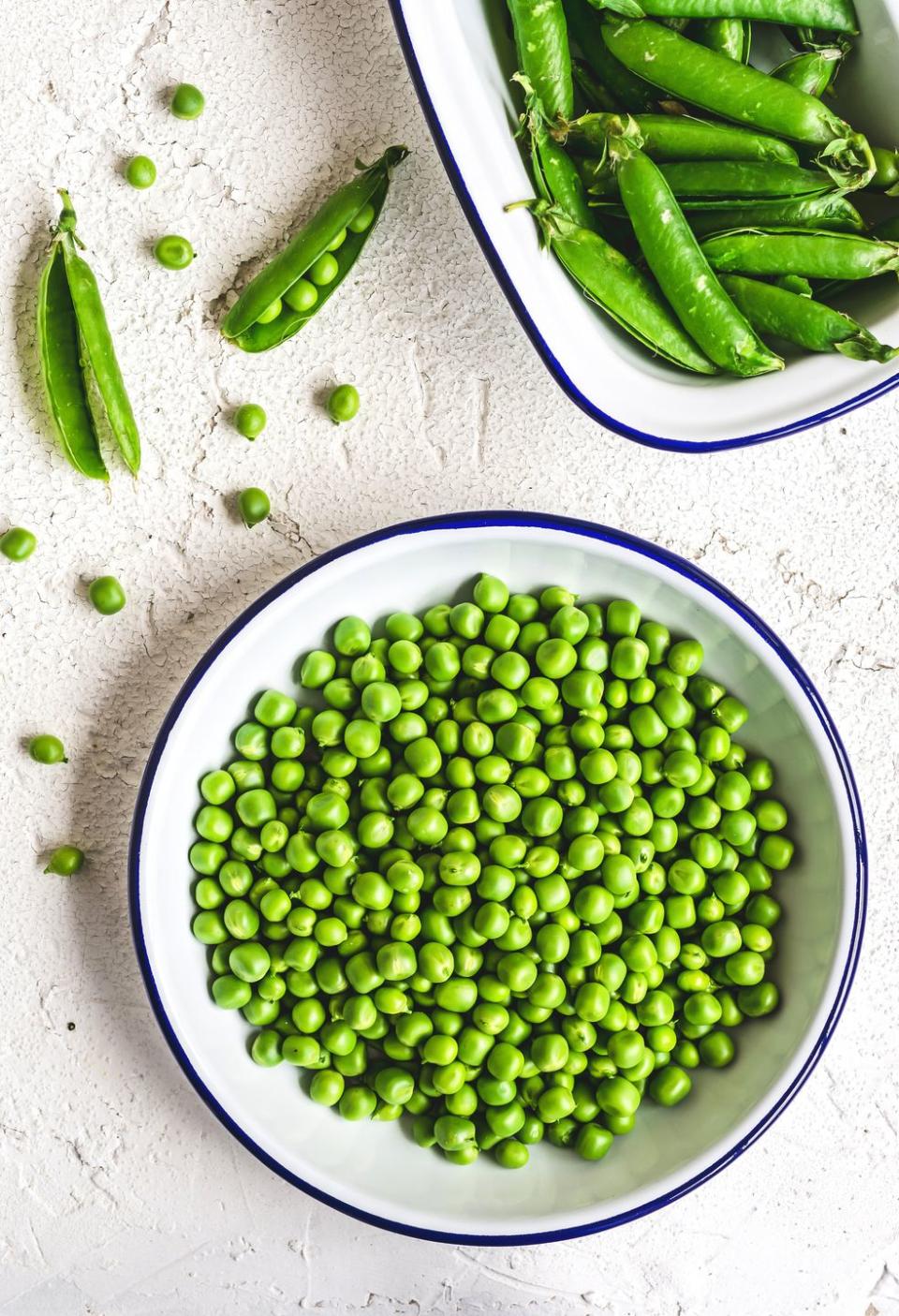
9. Green Peas
Protein: 4 grams per 1/2 cup, cooked
“Frequently overlooked as being pedestrian, [green peas] are always available in the frozen veggie section,” Sugiuchi explains. She likes them for their versatility, whether served as a side, mixed into grains like rice, pureed with broccoli, or blended into a soup. Green peas are also high in vitamins A, K, and C.
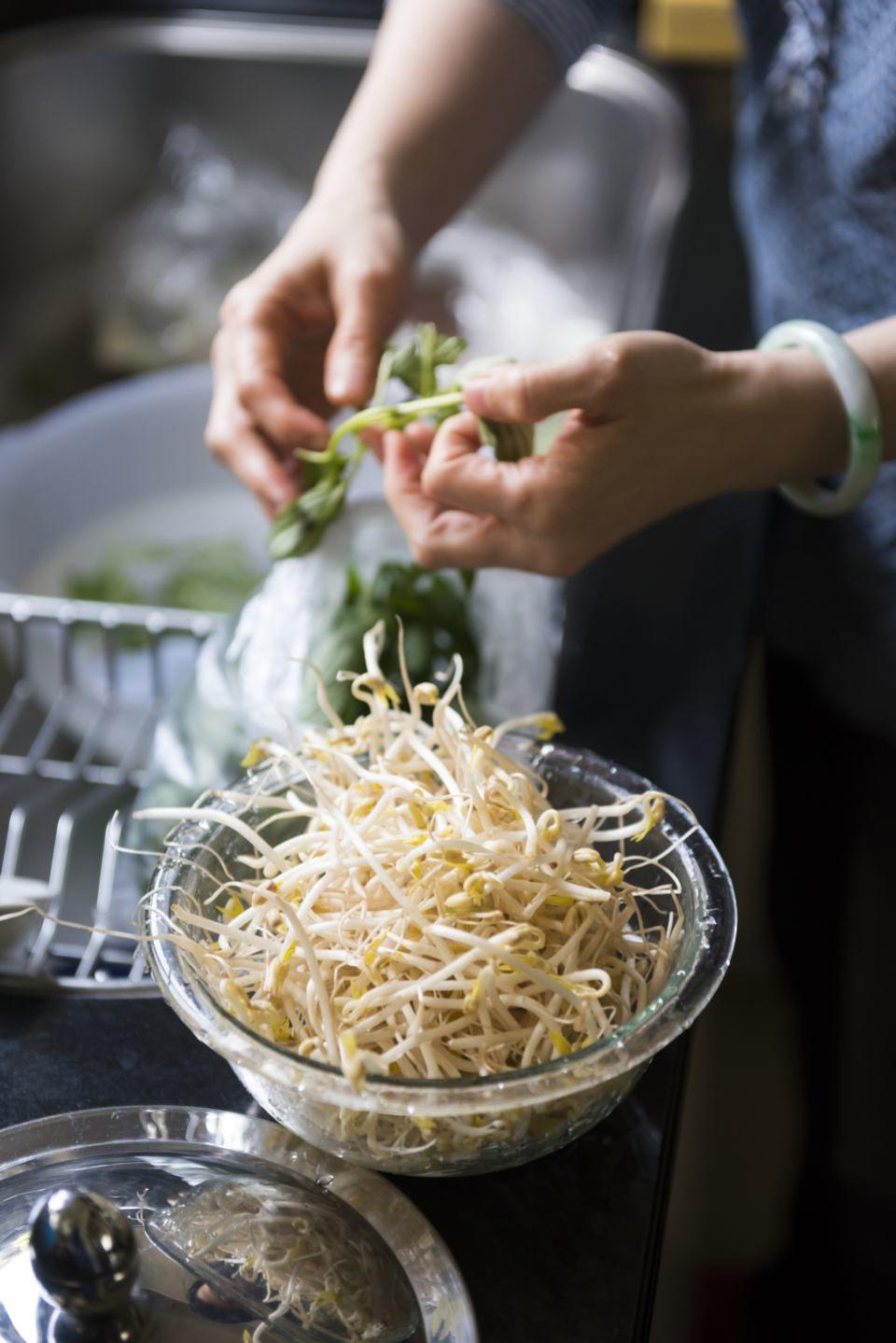
10. Soybean Sprouts
Protein: 4 grams per 1/2 cup, cooked
Whether on top of Korean bibimbap or in stir fry, soybean sprouts add crunch and a hefty dose of protein to plant-based plates. The veggies also offer fiber, ensuring you won’t feel hungry between meals or after dinner. And if you’re tired of beans, sprouts let you switch things up without sacrificing protein.
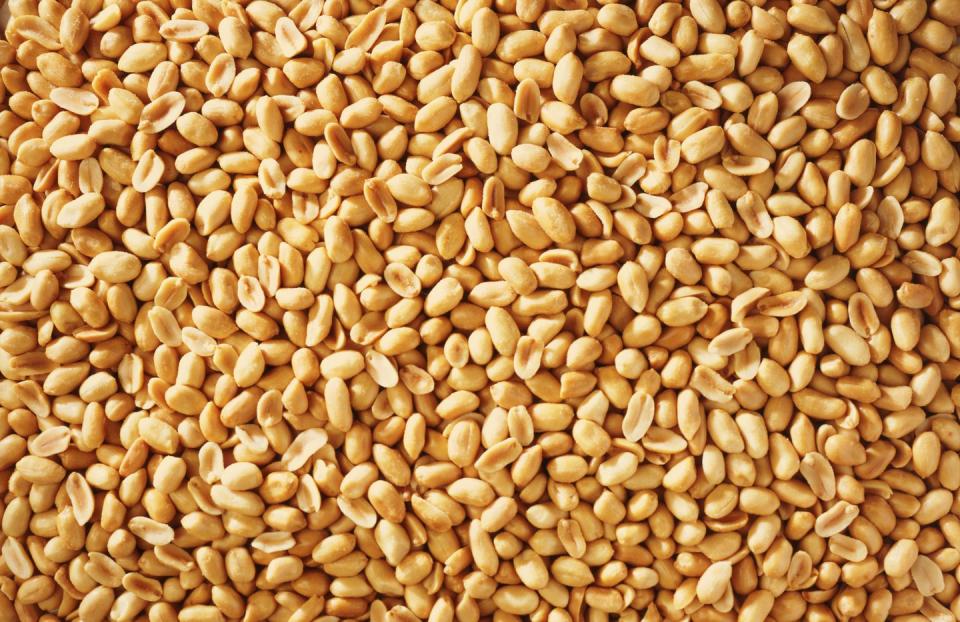
11. Peanuts
Protein: 8 grams per 1 ounce
Yes, peanuts are legumes, meaning they’re technically a vegetable. A 1-ounce serving packs in nearly 8 grams of protein, making it (and peanut butter) an ideal snack before or after the gym. The legumes are also easy to integrate into unexpected recipes, from protein-packed pancakes to tacos.
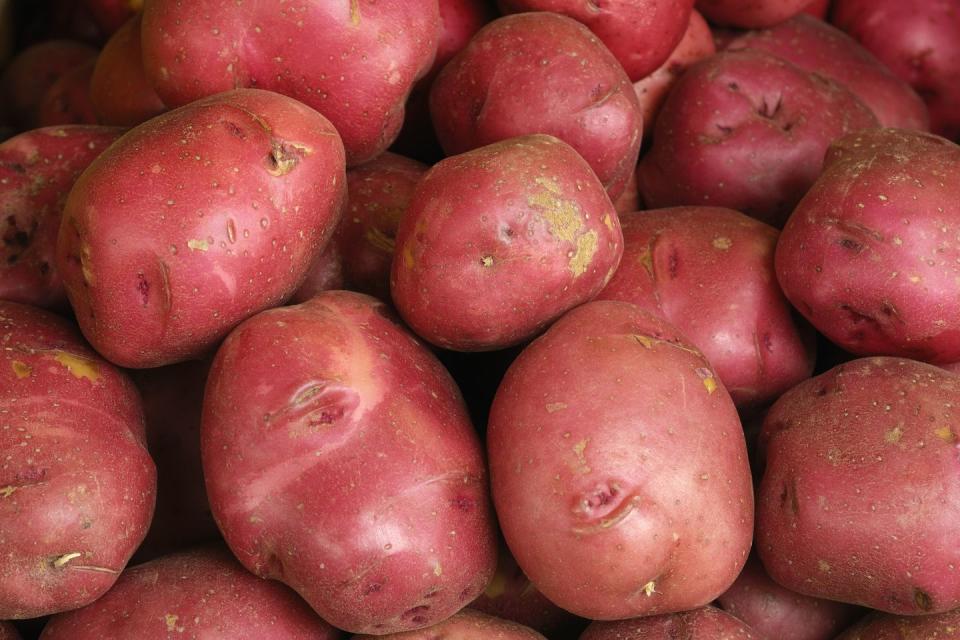
12. Red Potatoes
Protein: 7 grams per 1 large potato, cooked
Red potatoes (and white ones, too) are packed with protein, but what makes them special, Jones notes, is their high levels of dietary fiber and vitamin B6, which promotes the metabolism of protein. Baked, mashed, or roasted with other veggies, red potatoes are that rare combination of crowd-pleasing and healthy.
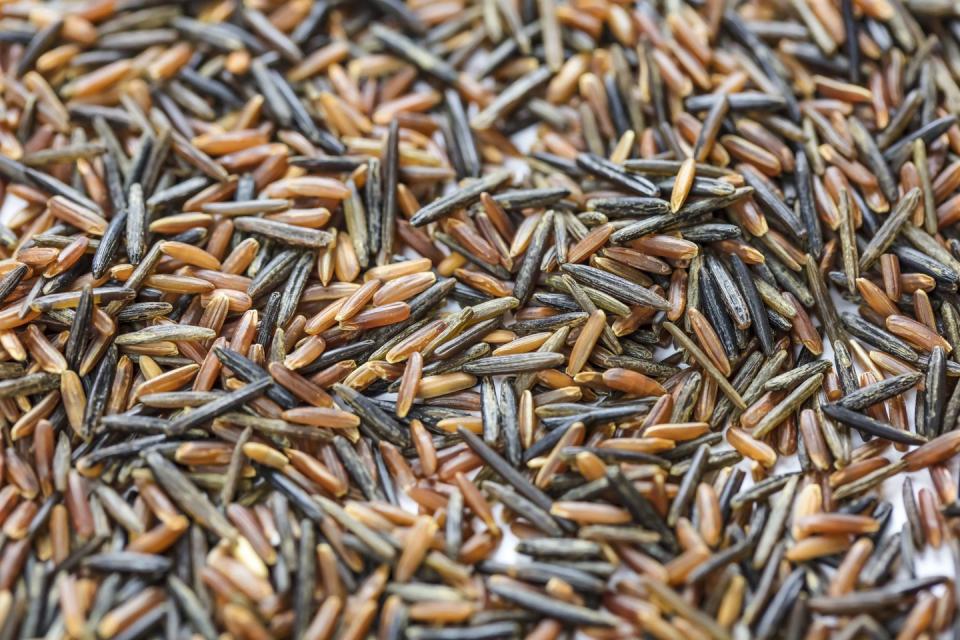
13. Wild Rice
Protein: 3.25 grams per 1/2 cup, cooked
Rice isn’t a vegetable, but wild rice is, since it actually comes from certain species of grass. The nutrient-dense veggie cooks much the same way actual rice would, so you can use it in wild rice-specific recipes and any others that include the grain, meaning it’s beyond easy to bump the protein in any rice-based dish.
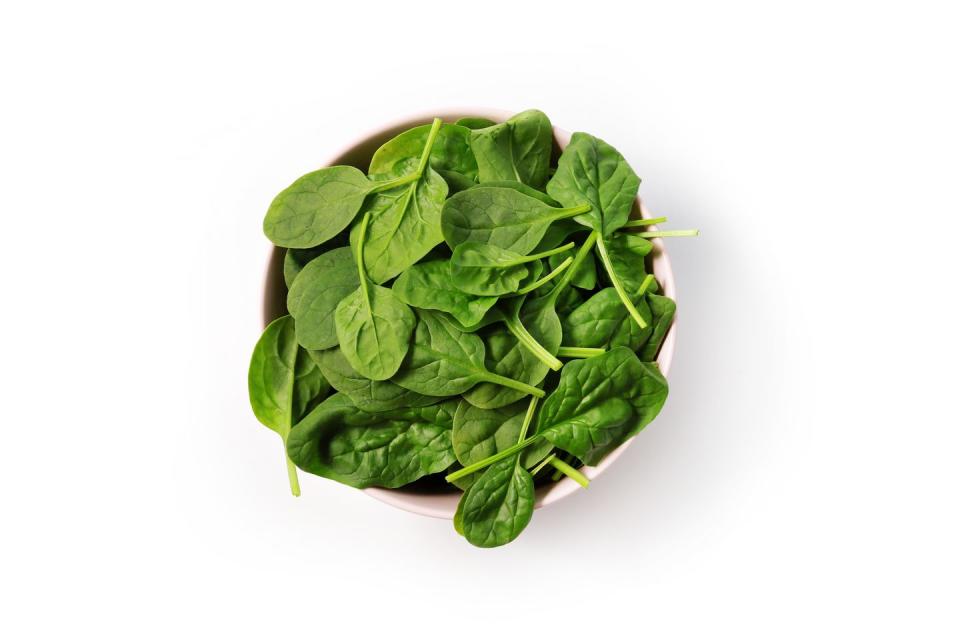
14. Spinach
Protein: 6 grams per 1 cup, cooked
“Besides being really good for you,” Jones raves, “spinach offers extraordinary nutritional value, and the health benefits of spinach are numerous.” The leafy green is loaded with goodies like calcium, folic acid, iron, fiber, and vitamins K and C. Even better, it’s easy to throw into pastas, salads, smoothies, and bowls.
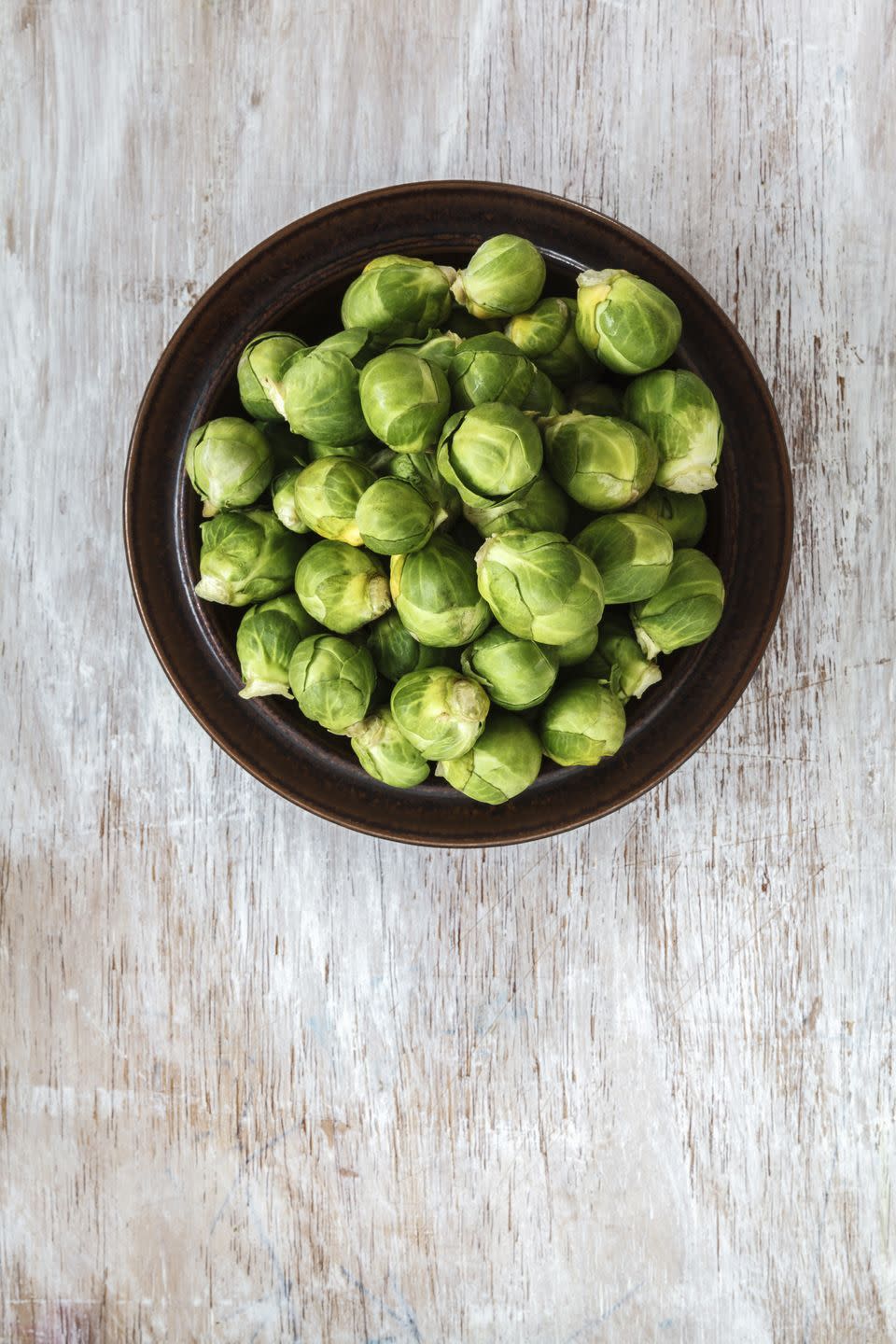
15. Brussels Sprouts
Protein: 5.5 grams per 1 cup, cooked
These little green veggies have always gotten an unfairly bad rap, but they can be delicious, nutritional superstars, at least if you know how to cook them. (Might we suggest a mustard glaze or a shaved salad?) In addition to protein, Brussels sprouts pack hefty doses of potassium and vitamin K.
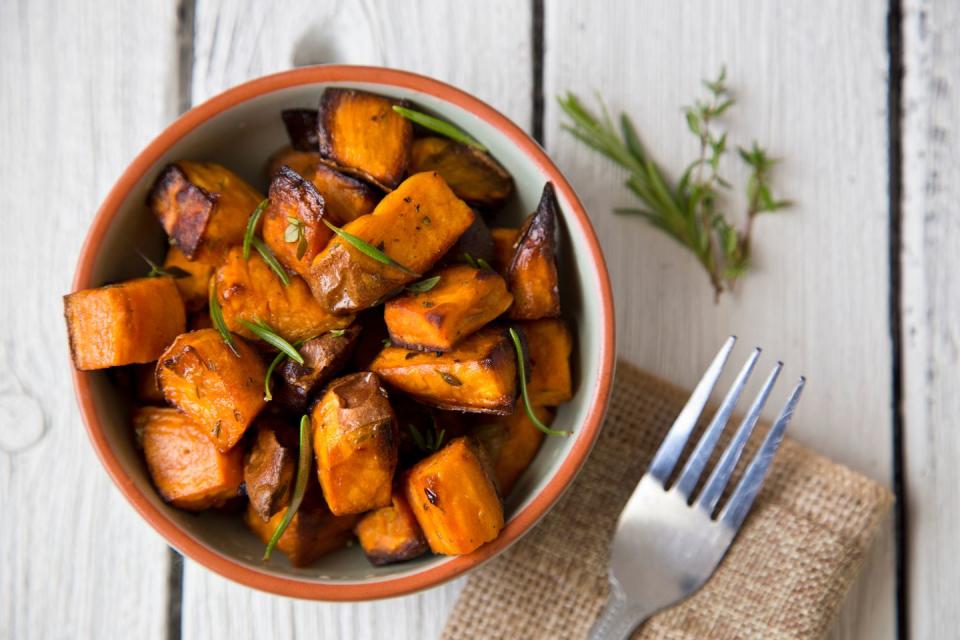
16. Sweet Potatoes
Protein: 5 grams per 1 large potato, cooked
Not to be outdone by their slightly more protein-packed cousins, sweet potatoes are still great sources of the nutrient, and they work with nearly any meal, from breakfast smoothies to gut-friendly dinners. The veggies are also rich in beta-carotene, which promotes healthy vision, skin, and immune systems.
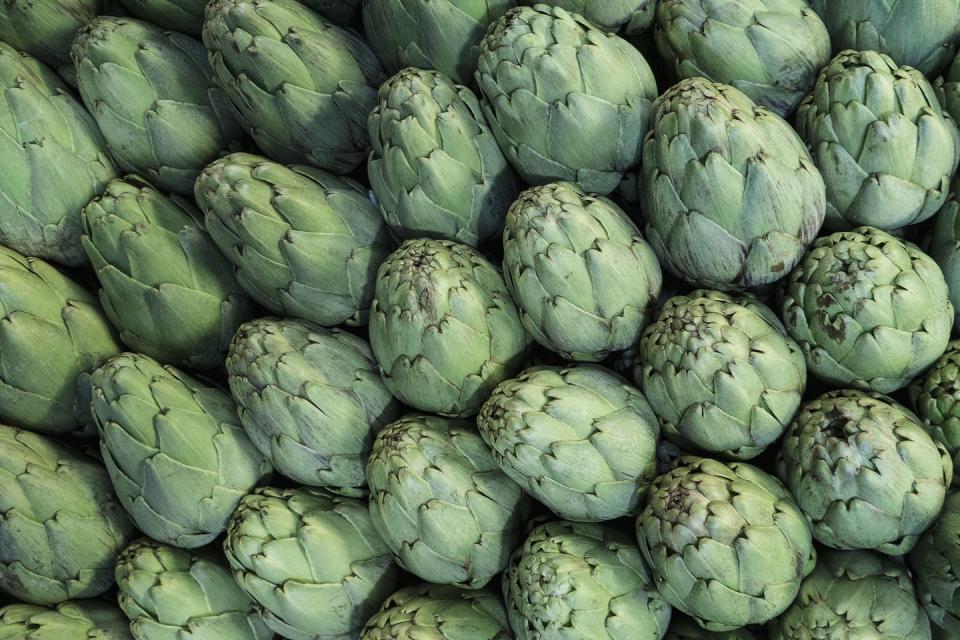
17. Artichokes
Protein: 5 grams per 1 cup, cooked
Artichokes shouldn’t just be relegated to dips. (Although, to be clear, they are very good in dips). The low-calorie, nutrient-dense veggies include huge amounts of folate and vitamins C and K, and they’re wonderful in sheet pan dinners, in roasted sides, and even on top of pizzas—they’ve been hiding in plain sight all this time.
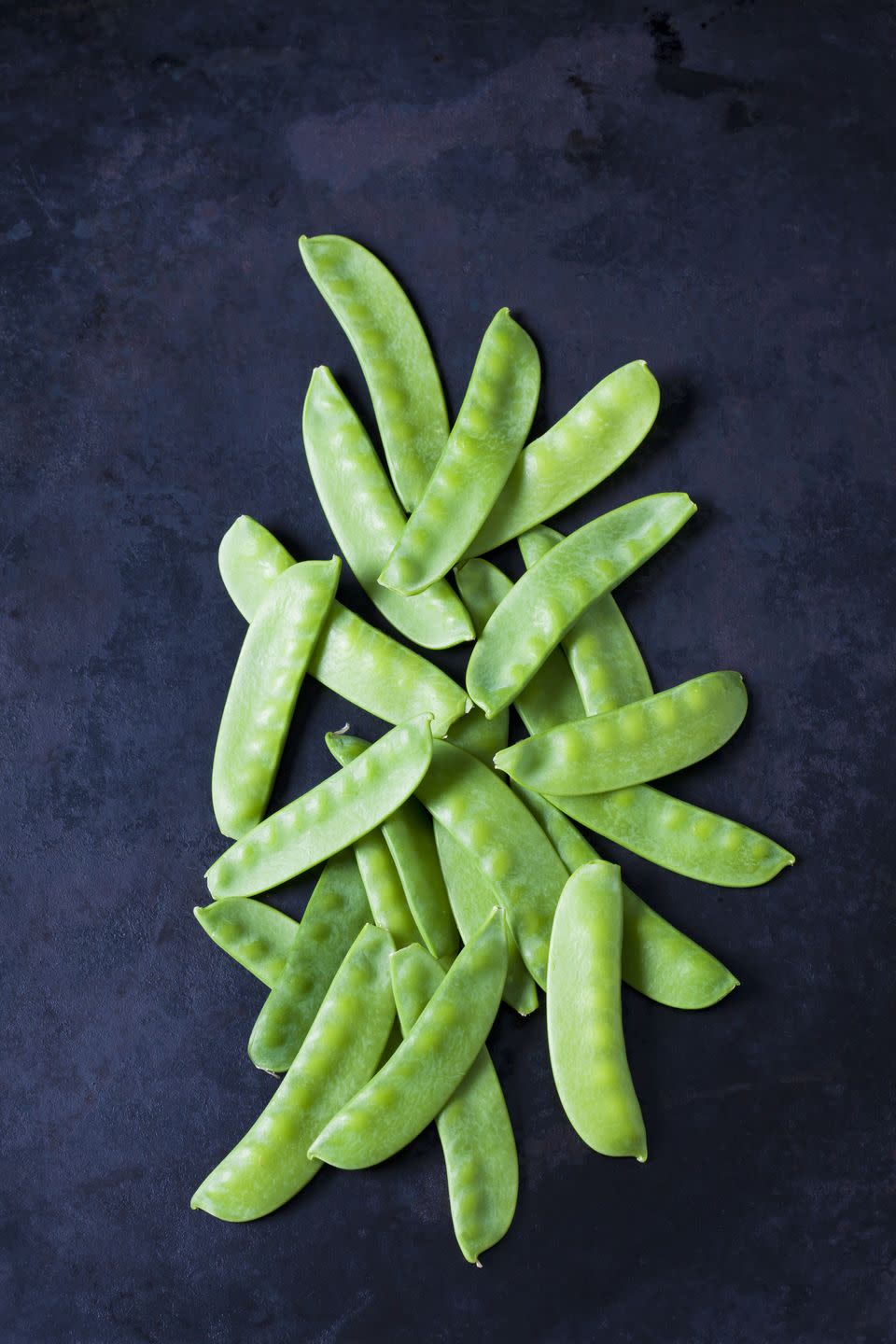
18. Snow Peas
Protein: 5 grams per 1 cup, cooked
Snow peas pack plenty of protein, both raw and cooked, making them a perfect addition to meals that could use a fresh, plant-based snap, including pesto tortellini and ricotta toast. You’ll also get a hefty dose of fiber and vitamin C with each serving—pretty impressive for such a satisfying snack.
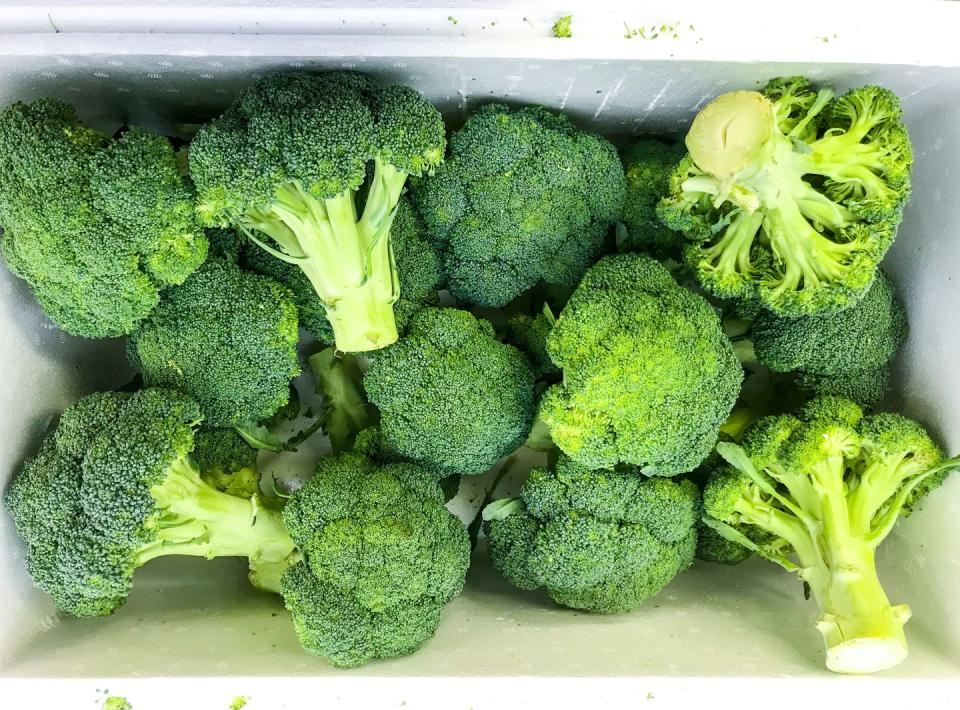
19. Broccoli
Protein: 5 grams per 1 cup, cooked
Broccoli’s not only an awesome source of fiber—it’s also a surprisingly great way to reach your daily protein goal. Plus, you can’t go wrong with a vegetable that’s linked with cancer-preventing properties, either. We love it in a stir fry, but you can always steam, bake, or puree the vegetable with just about anything.
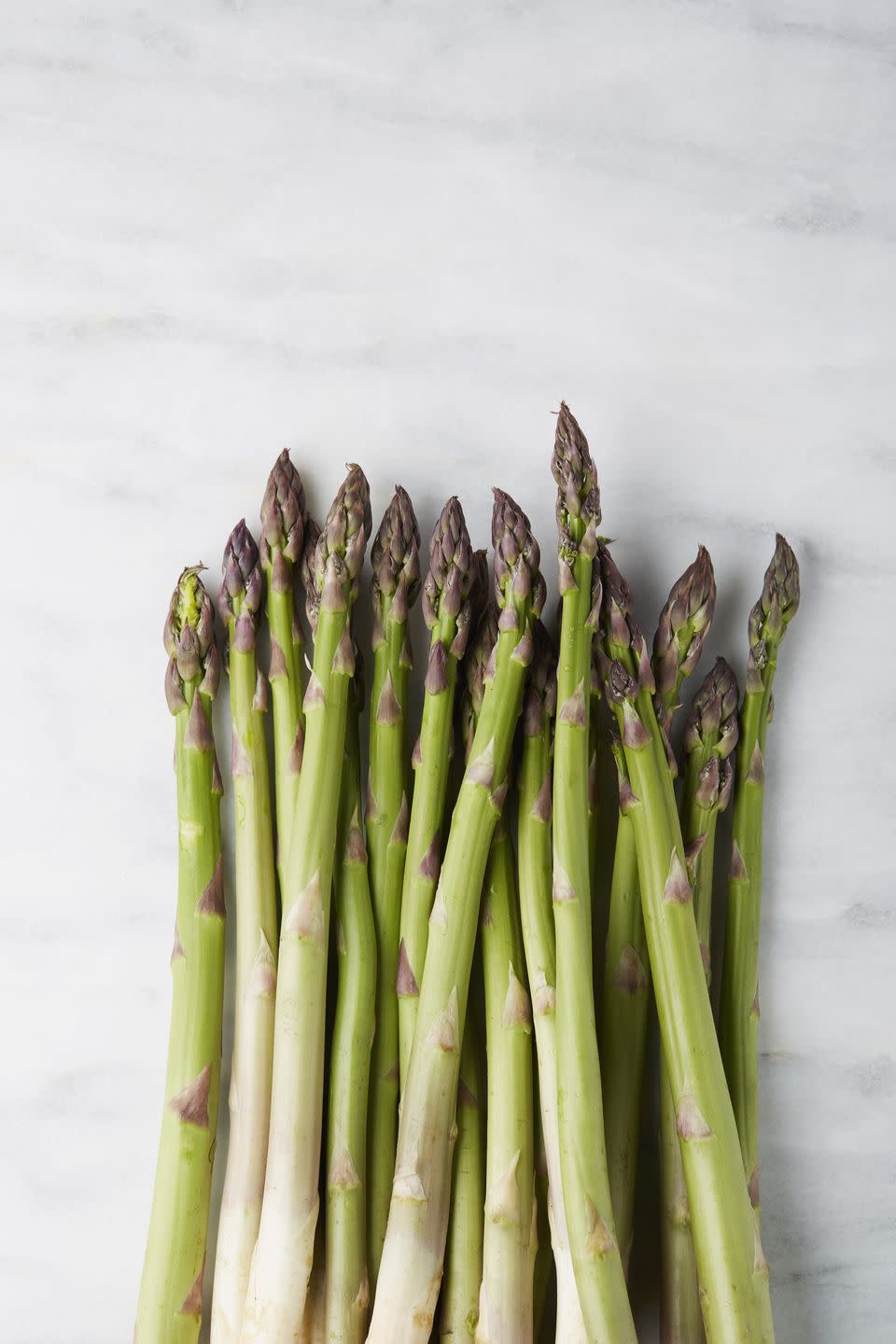
20. Asparagus
Protein: 4.25 grams per 1 cup, cooked
Asparagus is stealthily protein-packed, meaning it’s a great secret weapon in any vegetarian’s fridge. Whether tossed with spaghetti and shrimp or pickled alongside garlic, it’s the cornerstone of countless plant-based meals. Plus, it’s rich in folate and vitamins K, A, and C.
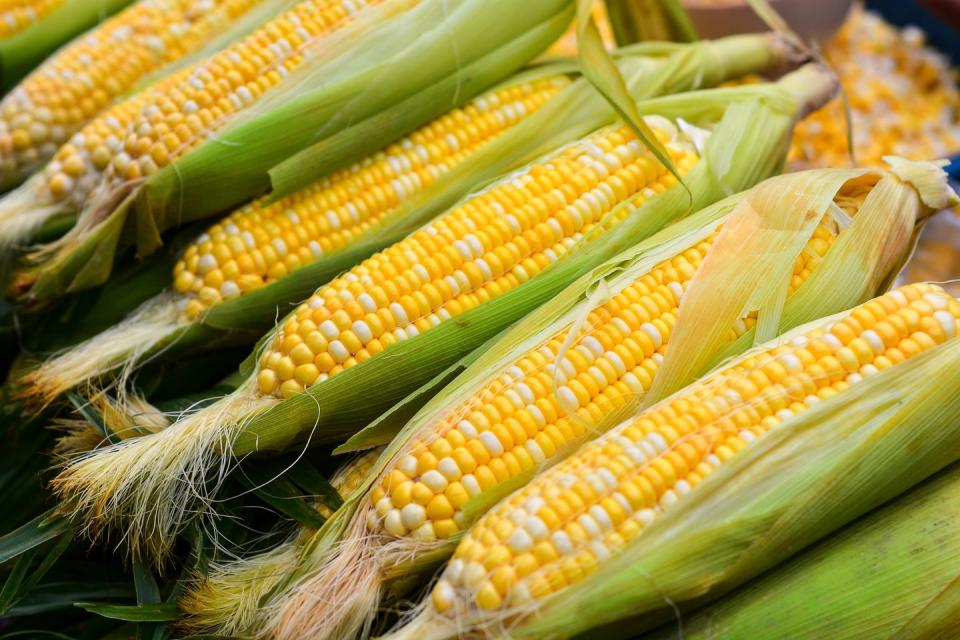
21. Corn
Protein: 4 grams per 1 cup, cooked
Like potatoes, corn often gets put into the “plants with no redeeming qualities” category, but with loads of fiber, folate, vitamin C, and magnesium (not to mention protein), it’s worth adding to your next meal, both fresh and frozen. If you’re still eating meat, serve it with chicken; if not, try it in coconut soup.
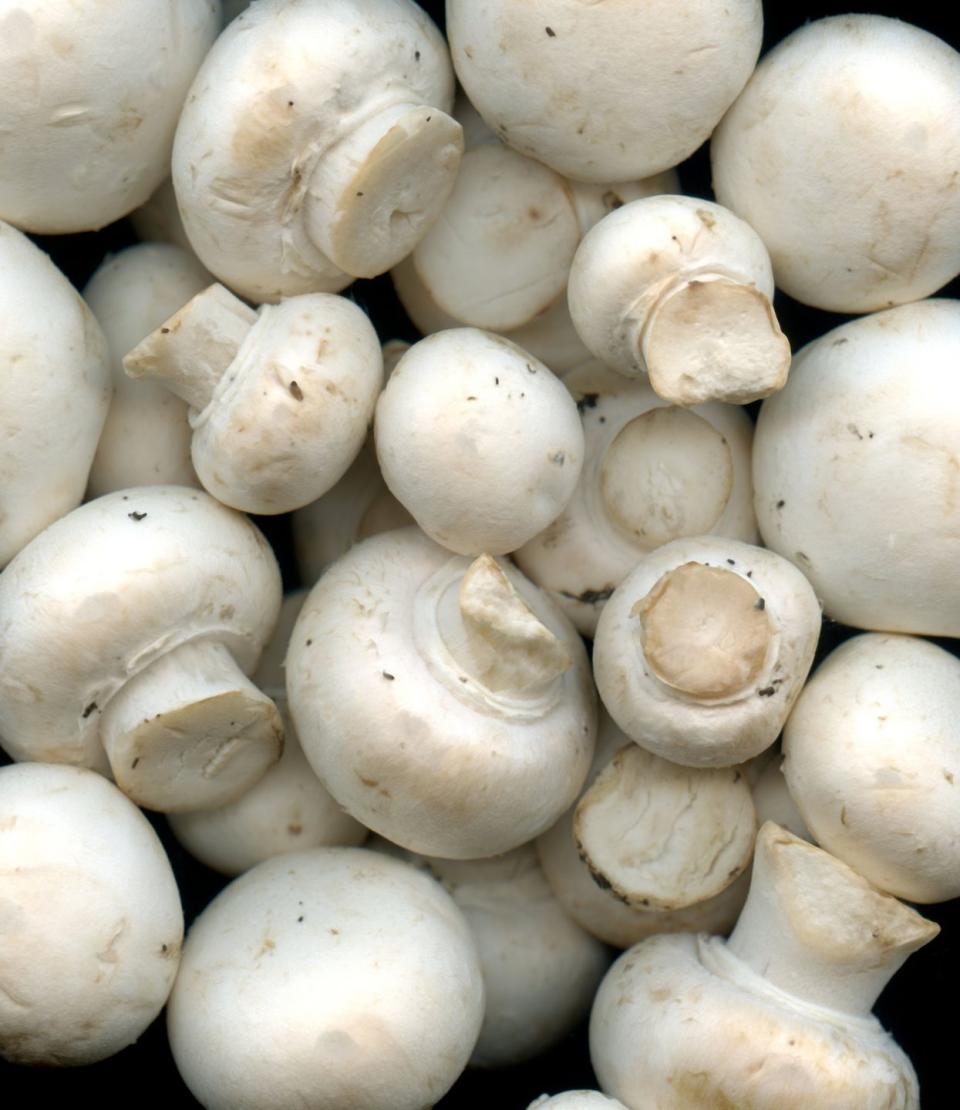
22. White Mushrooms
Protein: 4 grams per 1 cup, cooked
All mushrooms, from shiitake to oyster, have a good amount of protein in them. But white mushrooms have the most—and they happen to be some of the most ubiquitous. Throw them in basically any dinner (we suggest arugula pizza, bacon pasta, and mole tacos) for a boost of umami and protein.
You Might Also Like

